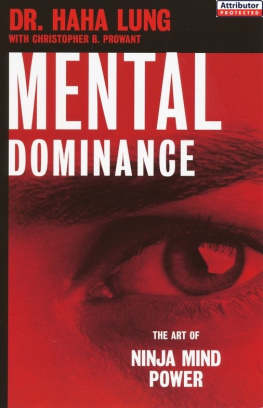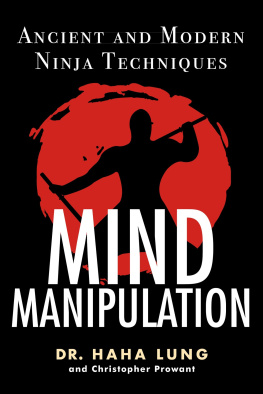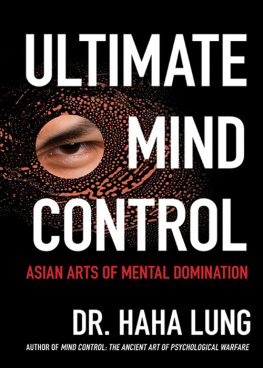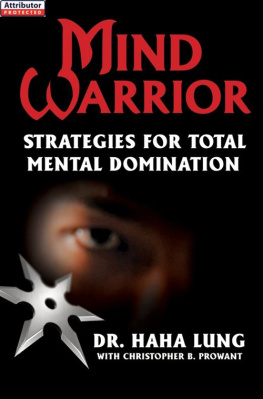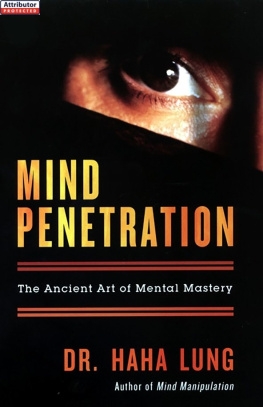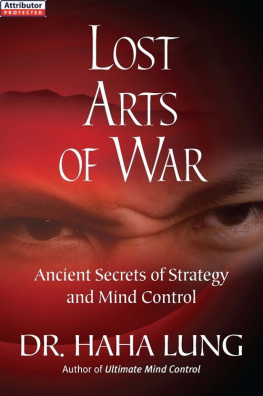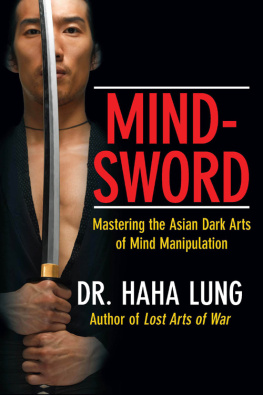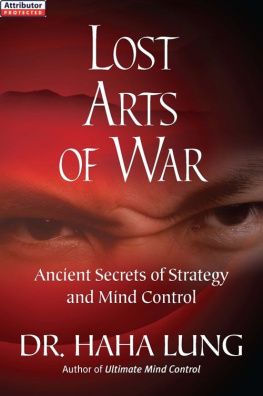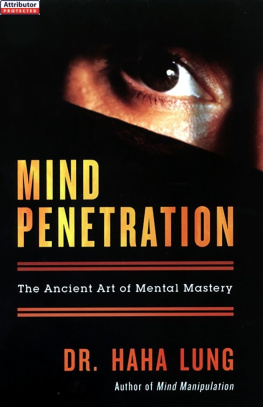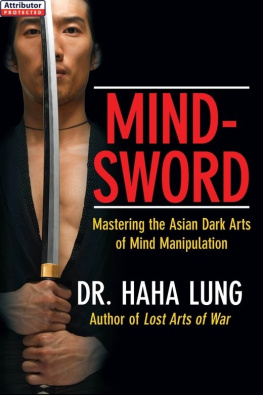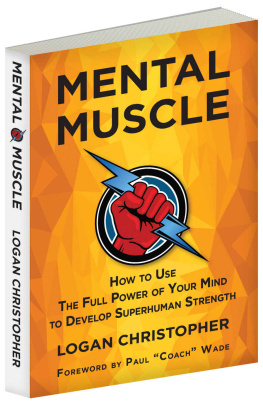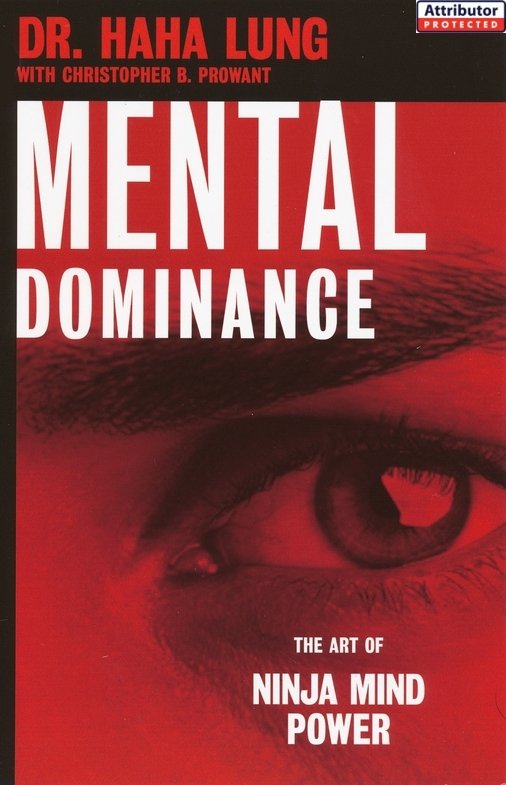CONCLUSION
Two Heads Are Better Than No Head!
On the whole, human beings want to be good, but not too good and not quite all the time.
George Orwell
They have a saying in the East: Where steel fails, silk often succeeds. Thus the wise general always arms himself with both steel and silk.
Silk? That most delicate, most sensual of fabrics? True, but should we ever doubt the darker potential of silk, our Eastern brothers are quick to remind us of how the impatient and the overtly ambitious in the Chinese Imperial court often gifted their rivals with fine silken robes ... robes crafted from silk spun by worms feeding on the deadliest of poisons. Your court rival donned the fine robe, the body heat activated the poison saturating the silk, and their illness and death quickly followed, as did yournow unopposedrise up the courtly food chain.
And then theres that oh-so-deadly East Indian cult of the Thuggee, merciless stranglers whose stock-in-trade was murder and whose weapon of choice for dispatching the unwaryor just the unluckywas likewise a simple silken scarf.
Where steel fails, silk often succeeds is the Eastern equivalent of the Wests two heads are better than one. Or, in other words, its always good to get a second opinion, always good to have a back-up plan.
Stubbornly clinging to a single modus operandi can prove costly. Japanese Sword-saint Miyamoto Musashi warns us time and again not to have a preferred strategy, one an astute adversary spies out and soon learns to counter. Likewise, didnt Bruce Lee call his way of fighting the style of no-style?
How much harder, then, is it to pin down or pigeonhole an adversary who keeps switching tactics?
Nature punishes predictability.
Musashi eventually founded a school of sword-fighting that specialized in wielding two full-sized swords. His philosophy being that Two swords are better than one sword and he took plenty of heads to prove his point.
Which brings us to that old maxim about If you can keep your head while all those about you are losing theirs ...
Its always good to have options. And its reasonable to assume that two headsput togetherwould give us a better chance of coming to the right decision. Unless, of course, ones the big head and the others the little head. Everyone knows, East and West, the little head more often than not gets the upper hand over the big headwho should know better!
And, should we allow that to happen, that Little Head overriding the Big Head, well then its just a short hop, skip, and swish-thump! to our losing our head altogether.
Of course, were sure we can all agree that two heads are better than no head? And down through the centuries, how many have lost their heads to love? Literally lost their heads to love?
Thats because, back in the day, losing ones head didnt mean throwing a hissy fit, instead, it usually meant the Red Queen throwing a hissy fit before then throwing her latest paramour to the tender mercies of the axman.
Were sure that poor sap being led to the chopping block would have appreciated the option of a second opinion. Were sure he would agree with us that two heads are better than oneat least that would have given him a little head to spare. Then again, in his particular instance, his having two heads (that weaker big head and dominant dork of a little head) is what sent him to see the final barber in the first place.
So maybe two heads arent automatically better than one, not if those two heads have decidedly different agendasor if one of them is just an overly loud, horny little bastard!
None of this is surprising, considering that science tells us our own three pounds of gray matter is actually two brains: a seemingly rational left side, and an artsy-fartsy right sidethe two sides often working at odds to one another.
If we cant keep it together inside our own head, inside our own house, so to speak, how can we expect to keep it in our pants when we step outside the house?
So two heads arent necessarily better than one, if those two heads happen to be trying to occupy the same already crowded space.
But we agreedo we not?its good to have the option of opinions from two headssteel and silk; preferring the latter, ready and able to fall back on the former if pressed.
Steel and silkstrategy and seduction. Two heads are really better than one, especially since being able to choose between the two actually gives us three choices, that third being the option of being able to use botha little silk, a little steel, the proverbial iron fist sheathed in a velvet glove.
Which brings us back to deciphering, If you can keep your head while all those around you are losing theirs ...
Perhaps, when it comes to strategy and the temptation of pulling out our missiles at the firstleastprovocation, a second opinion might be whats needed to prevent premature launch, to ensure we dont go off half-cocked. Sounds like sound strategy.
Likewise, when it comes to seduction, if we cant rely on keeping our head while all those about us are losing theirs ... perhaps we should settle for just keeping it in our pants!
Strategy is seduction. Seduction is strategy.
TABLE OF AUTHORITIES
Asanaro. The Secret Art of Boabom: Awaken Inner Power Through Defense Meditation from Ancient Tibet. Trans. Joice Buccarrey. Jeremy P. Tarcher/Penguin, 2006.
Bayer, Ronald. Homosexuality and American Psychiatry: The Politics of Diagnosis. New Jersey: Princeton University Press, 1987.
Bhagavad-Gita. (The Song of God) Misc. translations.
Bocking, Brian. A Popular Dictionary of Shinto. NTC Publishing Group, 1997.
Boese, Alex. Hippo Eats Dwarf: A Field Guide to Hoaxes and Other B.S. A Harvest Original/Harcourt, Inc., 2006.
Chung, Kuan. A Tale of Three Kingdoms (c. 1,400) Misc. translations.
Crowdy, Terry. Military Misdemeanors. Osprey Publications, 2007.
Dhammapada. (Sayings of The Buddha). Misc. translations.
Elinwood, Ellae. Qigong Basics. Tuttle Publishing, 2004.
Gordon, James. The Golden Guru: The Strange Journey of Bhagwan Shree Rajneesh, Stephen Greene, 1987.
Greene, Robert. The Art of Seduction. Penguin, 2001.
Gui Gu-Tze. Xiang Bian Wei Mang (Face Reading text, 250 B.C.E. ) Misc. translations.
Herrigel, Eugen. The Method of Zen. Vintage, 1974.
Hucker, Charles. Chinas Imperial Past. Stanford University Press, 1975.
I-Ching. (Chinese Book of Changes) Misc. translations.
Jeary, Tony. Life Is a Series of Presentations. Simon & Schuster, 2004.

